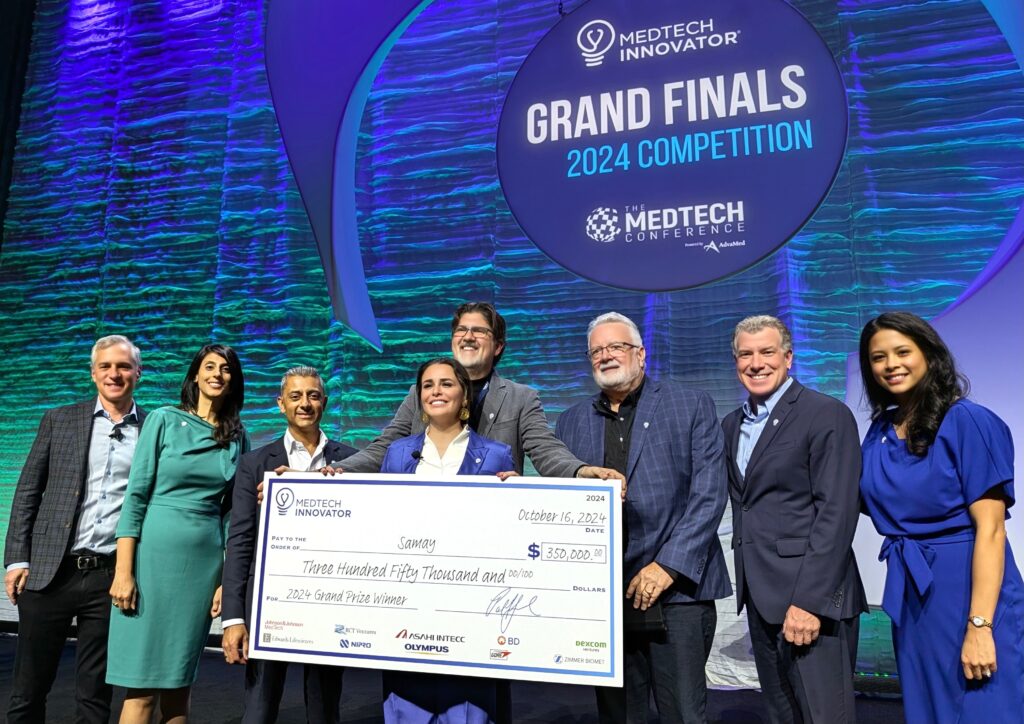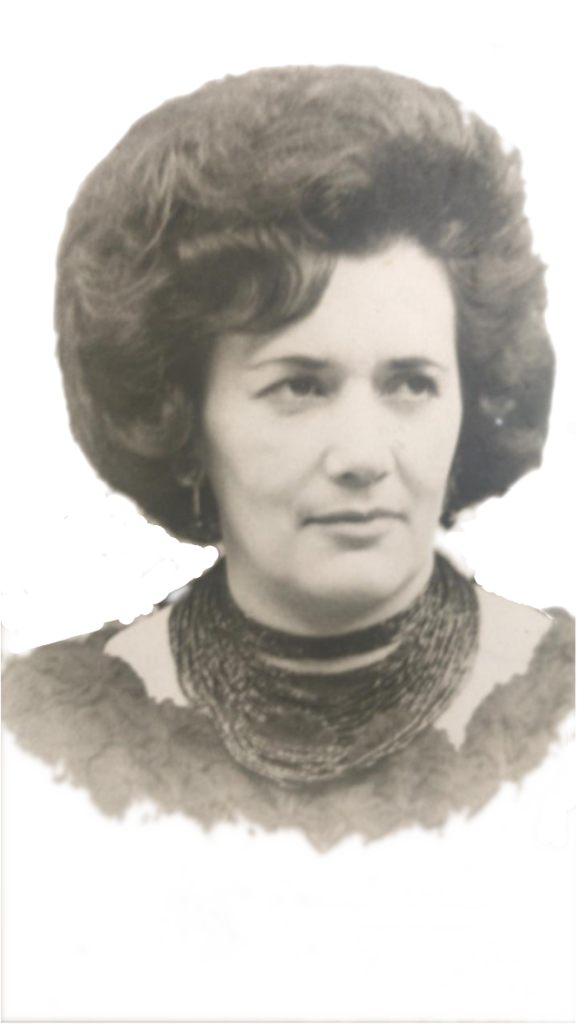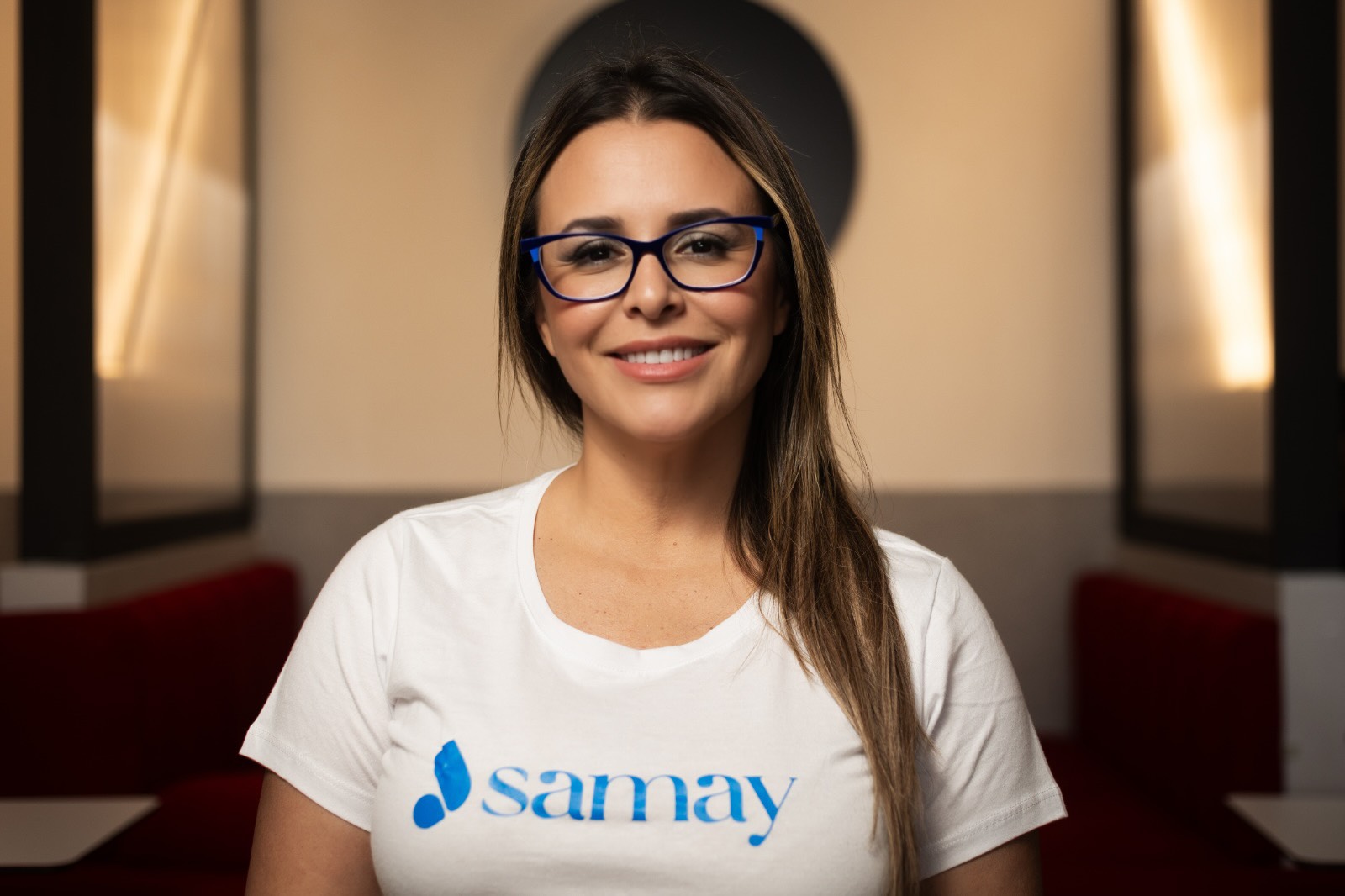
Maria Artunduaga’s grandmother never smoked. However, like many members of her generation, she was exposed to second-hand cigarette smoke much of her life. When she developed chronic obstructive pulmonary disease (COPD), lung monitoring technologies were inadequate. Maria’s grandmother lived until age 90, but the last years of her life were exhausting and limiting. Going to mass once a week was all she could endure.
Maria, a Colombia native, arrived at a solution to help the millions of patients like her grandmother who are undertreated for a variety of serious respiratory conditions.
A few other paths came first.

An exceptional student, Maria went to college at age 16 and graduated at the top of her class from Colombia’s best medical school. In the United States, she conducted post-doctoral research in genetics at Harvard for four years.
Inspired by her family members, and motivated to help under-served patients, Maria decided to study plastic surgery to treat Colombian children born with cleft palates and other craniofacial malformations. Her younger sister has cerebral palsy and needed surgeries as a child for motor skills improvement. Colombia at the time had few, if any, surgeons focusing on these needs.
However, the path to plastic surgery went poorly. Studying at another U.S. university, Maria encountered tasteless jokes rooted in stereotypes about Colombia: living in the jungle, trafficking narcotics, guerrilla warfare, her accent and communication skills, her friendly personality, and more. Colleagues questioned her credentials and her academic fitness for a top U.S. surgical program. She felt she didn’t belong.
After earning degrees in other fields, she found another path.
Scott May is executive director of the International Center for Professional Development, which runs the Scientist Mentoring & Diversity Program (SMDP) for MedTech, supported by sponsors including AdvaMed®. The year-long mentoring program connects students from underrepresented groups with mentors in the medical technology industry. Scott’s team contacted Maria’s master’s degree program director at the University of California, Berkeley, to encourage her to apply. She did, and the program was revelatory.
“It was a very nice experience to get to be with people who have the same challenges as you do,” she said. “You’re Brown or you’re Black – we all have faced very similar issues, problems, challenges.”
In addition to the welcome introduction to peers, Maria realized medtech appealed to her love for “gadgets,” data, and tech.
The SMDP program also sharpened Maria’s characteristic determination. While attending a MedTech Innovator competition featuring companies with novel products, she realized all presenters were white men. She saw an opening.
“I’m going to show them there are more people who look and speak like me who can contribute significantly to the industry” if the men dominating medtech were just open-minded, she said.
The men of medtech were indeed welcoming and gave Maria ample advice as an entrepreneur.
Thinking of her grandmother, Maria created her company, Samay (“Samay” means “to breathe deeply” in the Quechua language, the second-most spoken language in the Andean region).
A medtech startup is hard, and Maria was solo. The hard work was worth it because she knew she was creating a good product.
“I need to be in love with the things that I’m working on,” she said.
Samay is developing a novel acoustic resonance patch for respiratory disease diagnosis, management, and intervention. The patient wears the patch like a continuous glucose monitor for diabetes. The device functions like miniature high-resolution headphones that also send signals and listen to them. The device can identify conditions such as COPD and asthma at low cost.
Samay earned numerous research grants. Maybe its most high-profile recognition yet, however, came at AdvaMed®’s MedTech Conference in October in Toronto, when Samay won the $350,000 grand prize award from MedTech Innovator, the world’s largest accelerator of medical technology companies. AdvaMed® hosts the MedTech Innovator competition and the SMDP scholars each year at The MedTech Conference, which convenes the next generation of entrepreneurs and aspiring leaders alongside the medtech industry’s leading companies, investors, and decision makers.
Samay earned the honor in a highly competitive process, the first Latin American company accepted to MedTech Innovator in its 12-year history.
Maria said she felt imposter syndrome at first, rising among 65 worthy competitors, with her company of 10 employees, most educated in Colombia, not at Harvard.
But the research grants continue to come in, and so does the data validating the Samay product. Additional grants and funding appear likely. The prospect of success is sinking in.
“It started with just me – a doctor with this crazy idea,” Maria said.
The name of the company’s device? “Sylvee,” after Maria’s beloved abuela, Sylvia.

Jennifer Brearey is executive director of AdvaMed Advance®, an industry convener aimed at unlocking the power and potential of all talent and driving innovation in medical technology through achieving the best inclusion and diversity practices. Jennifer is also chief operating officer and chief financial officer of AdvaMed®.
Key Dates
- Applications for the MedTech Innovator 2025 accelerator for start-up medical device companies are open. Apply by January 15, 2025, to be considered for a four-month long program featuring education, networking, mentoring, and the opportunity to win cash awards. Learn more and apply at https://medtechinnovator.org/apply/
- Applications for the Scientist Mentoring & Diversity Program (SMDP) for ethnically diverse undergraduate and graduate students also are open. The application deadline is April 4, 2025. Learn more and apply at https://smdp.icpdprograms.org/
- Don’t miss the next The MedTech Conference, October 5-8, 2025, in San Diego.
Hear Patient Stories
The Story of Medtech empowers patients to share their experiences with medical technology in an effort to educate, inspire, and create community.